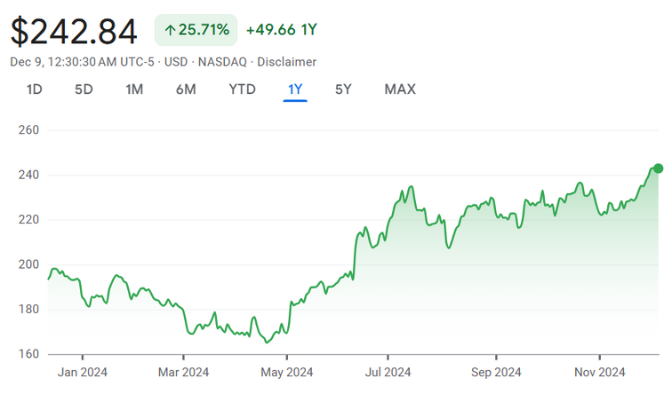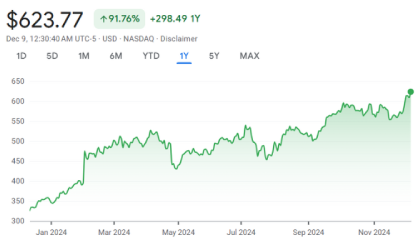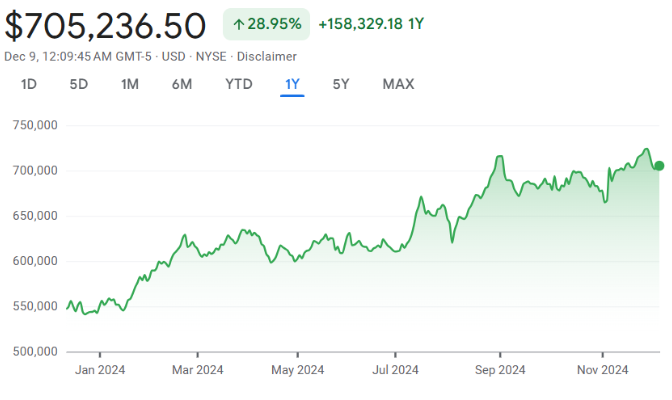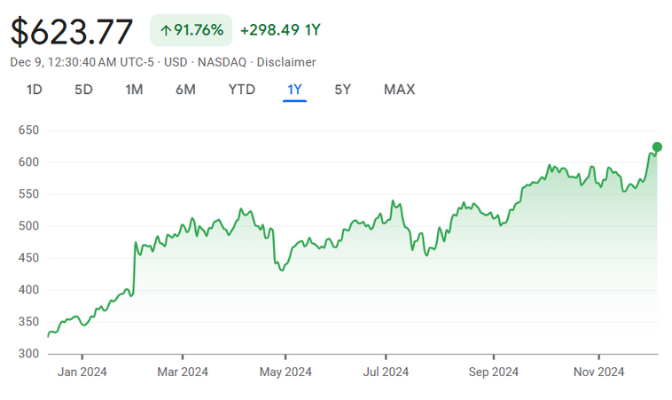What Are Airline Stocks?
Airline stocks are shares of companies in the aviation industry. This includes passenger airlines, cargo transporters, and businesses providing related services such as aircraft maintenance or airport operations. Airlines are significant contributors to global economies, facilitating international trade and tourism.
When you purchase airline stocks, you are purchasing ownership in the airline's business-limits of its fleet, routes, and operations. Factors that affect these stocks include fuel prices, demand for air travel, geopolitical stability, and economic conditions.
Why Invest in Mid-Cap Stocks?
Mid-cap stocks provide investors with a blend of growth potential and the relative stability often associated with larger companies, offering significant value for anyone looking to diversify their portfolio. Companies that have outgrown the uncertainties of the small-cap stage but are not yet as mature as large-cap companies often present room for increased growth. As a result, mid-cap stocks are often capable of delivering better returns compared to large-cap companies, which may be more saturated in their markets.
Investing in mid-cap companies also provides exposure to businesses that are agile and responsive to market changes. Such companies frequently operate in emerging industries or niche markets, offering significant upside potential. From an accessibility perspective, mid-cap stocks tend to have moderate price points, allowing investors to build a diversified portfolio without requiring a large upfront investment.
They also tend to have a better risk-to-reward balance. While large-cap stocks may be less risky, the exponential growth potential of mid-cap stocks is often missed by these larger companies. Of course, mid-caps are less risky than small-cap stocks, which are typically highly volatile. For long-term investors seeking growth in a company with strong risk management, mid-caps are an excellent choice.
Get the Latest Stock Market Insights for Free with
Stocks Down Under & Pitt Street Research
Join our newsletter and receive exclusive insights, market trends, investment tips, and updates delivered directly to your inbox. Don't miss out!
The Biggest Airline Stocks of 2024-25

Qantas Airways (ASX: QAN)
Qantas Airways is the largest and most recognized airline in Australia and is often referred to as "The Flying Kangaroo." It was established in 1920 and has become a world leader in aviation, offering safe, innovative, and high-quality services. The company has always demonstrated resilience and flexibility, especially during tough times, such as during the COVID-19 pandemic...

Regional Express Holdings (ASX: REX)
Regional Express is an important player in Australia's regional airline market. Although it mainly flies regional routes, REX has played its cards right to extend their services up to major domestic routes that position it as a reasonable alternative to bigger airlines. Rising regional travel demand has brought about steady post-pandemic recovery of revenues for REX. REX's revenues Despite its niche market operation, the company has managed its...

Air New Zealand (ASX: AIR)
Air New Zealand is the national carrier and a leading player in the New Zealand and South Pacific regions. The airline is always known for its excellent customer service, innovative marketing, as well as its premium in-flight experience. It operates under a mix of domestic routes and long-haul international destinations. ir New Zealand has shown financial revival post-pandemic with boosted international...
The Biggest Airline Stocks of 2024-25
How to Analyze Airline Companies to Invest
Airline stocks offer significant investment opportunities, considering the complex blend of determinants that impact the airline's financial strength and operational efficiency. To outline in detail how the analysis of airlines can be undertaken is as follows:
Look for steady revenue growth year after year, which would translate to stable demand for the service. Metrics such as the operating margin and net profit margin can help determine profitability. With lower operational costs, airlines tend to have better margins even in stressful times. Airlines are capital intensive and carry a lot of debt. Look at the debt-to-equity ratio and interest coverage ratio to understand financial stability.
A modern, fuel-efficient fleet is very important for the reduction of cost and operational efficiency. Newer aircraft are better suited for future expansion. Carriers that have good practices in terms of cost management are always better at coping with external factors such as the volatility of fuel prices or economic downturn. Look for those carriers with a low-cost structure or those that actively reduce their costs through strategic measures.
Long-term investor confidence is likely to be accrued as airlines look towards reducing emissions and embracing sustainable practices in an ever-more environmentally conscious world.
Investing in Airline Stocks
Invest in domestic, regional, and international airlines to lessen risks about specific markets. Consider a company with healthy balance sheet, steady cash flows and low manageable debt. That financially fit airline is far more responsive to external conditions, be it economic downturn, or rising fuel prices. A typical feature of airlines is extreme cyclicality, where companies perform inversely with the macro economy. In the upside, with the economy booming, consumer spending becomes discretionary and on travel as well. At such points, airline revenues flourish. Economic downturns create slackening demand.
Some airlines pay dividends to shareholders. If you like stable income and have some growth potential, dividend-paying airline stocks are ideal. Fuel prices play a major role in airline costs of operation. Airline companies that hedge against volatile fuel prices or invest in efficient aircraft may be more profitable. For a diversified investment, you can invest in exchange-traded funds that are aviation sector-specific. This helps distribute your investment across various airline stocks, thus minimizing risk.
Are Airline Stocks a Good Buy?
Airline stocks can be an excellent addition to an investment portfolio, but suitability depends on your risk tolerance, market conditions, and investment goals.
The airline industry, by its nature, is cyclical with the overall global economic trend. With economic growth comes increased demand for air travel, thereby increasing revenues and profitability. However, sectors like these are hit rather hard in times of recession or global calamities such as pandemics.
This demand is coming from a growing middle class in emerging markets, especially in the Asia-Pacific region. This growth can be seen in airlines that are based or expanding into these markets.
Another reason investors find value in such airlines is that many well-established airlines pay steady dividends, attractive to income-focused investors, and provide the investment of long-term appreciation with growth in the industry.
Many airlines are investing in technology to improve operational efficiency and customer experience. This includes adopting fuel-efficient aircraft, leveraging data analytics for route optimization, and introducing sustainable aviation practices.
Potential Risks To Consider
Airlines are among the first industries to feel the impact of an economic slowdown. This is primarily because the sector's growth is closely tied to consumer spending, which often declines during periods of financial uncertainty. Additionally, airlines face high operational costs, with fuel, labor, and maintenance being the most significant. If these expenses are not effectively managed, they can quickly erode profitability.
Another critical factor is the highly regulated nature of the aviation industry. Airlines must comply with strict safety, environmental, and operational standards, which can limit their growth potential and add layers of complexity to their operations. Furthermore, geopolitical tensions, fluctuating exchange rates, and changes in government policies can also impact the industry’s stability and profitability.
Recognizing these risks is essential for investors, as they significantly influence an airline's ability to navigate challenges and maintain financial health.
Our Analysis on Large Cap Stocks
Annual Recurring Revenue: Is it a useful metric or lipstick on a pig?
Annual Recurring Revenue (ARR), sometimes called Annualised Recurring Revenue, is a metric you’ll hear some ASX small caps use. What…
eGaming stocks are booming, so which ones should investors look at in 2023?
eGaming stocks haven’t performed well in recent years even as the global gaming industry has grown exponentially. The global gaming…
We know it’s not very woke, but we still like oil and gas
Stuart Roberts from Stocks Down Under says he isn’t popular at cocktail parties, being a fan of oil. He sees…
- « Previous
- 1
- …
- 9
- 10
- 11



